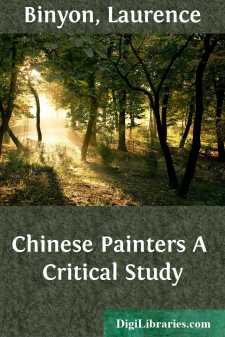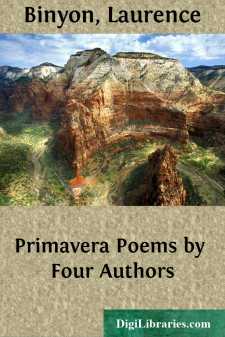Categories
- Antiques & Collectibles 13
- Architecture 36
- Art 48
- Bibles 22
- Biography & Autobiography 813
- Body, Mind & Spirit 141
- Business & Economics 28
- Children's Books 12
- Children's Fiction 9
- Computers 4
- Cooking 94
- Crafts & Hobbies 4
- Drama 346
- Education 46
- Family & Relationships 57
- Fiction 11826
- Games 19
- Gardening 17
- Health & Fitness 34
- History 1377
- House & Home 1
- Humor 147
- Juvenile Fiction 1873
- Juvenile Nonfiction 202
- Language Arts & Disciplines 88
- Law 16
- Literary Collections 686
- Literary Criticism 179
- Mathematics 13
- Medical 41
- Music 40
- Nature 179
- Non-Classifiable 1768
- Performing Arts 7
- Periodicals 1453
- Philosophy 64
- Photography 2
- Poetry 896
- Political Science 203
- Psychology 42
- Reference 154
- Religion 513
- Science 126
- Self-Help 83
- Social Science 81
- Sports & Recreation 34
- Study Aids 3
- Technology & Engineering 59
- Transportation 23
- Travel 463
- True Crime 29
Laurence Binyon
Laurence Binyon (1869–1943) was a British poet, dramatist, and art scholar, best known for his World War I poem "For the Fallen," which honors the sacrifice of soldiers. He worked at the British Museum, specializing in Asian art and writing influential works like "Painting in the Far East." Binyon also authored poetry collections, including "The Winnowing Fan," and wrote plays. His deep knowledge of art and culture extended to translations, most notably his version of Dante's "Divine Comedy."
Author's Books:
Sort by:
by:
Laurence Binyon
INTRODUCTION Whatever its outward expression, human thought remains essentially unchanged and, throughout all of its manifestations, is fundamentally the same. Varying phases are but accidents and underneath the divers wrappings of historic periods or different civilizations, the heart as well as the mind of man has been moved by the same desires. Art possesses a unity like that of nature. It is...
more...
by:
Laurence Binyon
PREFACE This little book was written by four friends, three of them under-graduates at Oxford, and all of them penetrated with the spirit of the higher culture of our time. The poems, it is clear, have been carefully selected; and, it is probable, have been diligently polished. There is not one which is not remarkable for delicacy of style and conscious aiming after excellence in art. Whether these...
more...



